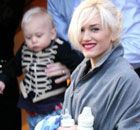Science and Health
Many American women quit breast-feeding early
(Xinhua)
Updated: 2009-12-28 09:46
 |
Large Medium Small |
LOS ANGELES: Many American women quit breast-feeding early due to insufficient maternity leave, according to a new study.
Though a growing percentage of American moms start their infants on human milk, relatively few continue breast-feeding for the baby's first six months of life, let alone an entire year, said researchers at the University of California, Berkeley, School of Public Health.
The research findings were published by Health Day News on Sunday.
"What we saw is if women take very short maternity leaves, of six weeks or less, they run more than a three times higher risk of quitting breast-feeding compared to those still at home who haven't returned to work," said Sylvia Guendelman, a professor who chairs the maternal and child health program at the school.
To find out whether maternity leave makes a difference for breast-feeding success, Guendelman and her team examined data from 770 full-time working women in Southern California.
Full-time workers with short postpartum maternity leaves were more likely to quit breast-feeding early, the study found.
Those at highest risk were women in non-managerial and inflexible positions and women with higher stress levels, said the study.
The American Academy of Pediatrics recommends that women breast-feed exclusively for six months and continue breast-feeding for at least an infant's first year of life.
Exclusive breast-feeding -- meaning no water, juice, formula or foods -- has been shown to improve protection against many diseases, including bacterial meningitis, diarrhea and ear infections, the academy says.
On that score, the United States has made little progress. Of infants born in 2006, 43 percent were breast-feeding at 6 months and 23 percent at 12 months. Just 14 percent, however, had been exclusively breast-fed for six months, according to figures released by the US Centers for Disease Control and Prevention.
The numbers fall short of national objectives for breast-feeding. Healthy People 2010, the government's health promotion and disease prevention agenda, seeks to boost the number of breast-feeding women to 75 percent by 2010. The six-month and one-year targets are 50 percent and 25 percent, respectively.
Guendelman said she would like physicians to advocate for extended postpartum maternity leaves for working women. "If you know you have some time off," she said, "you are more likely to establish breast-feeding in the first 30 days and not just give up so quickly."










